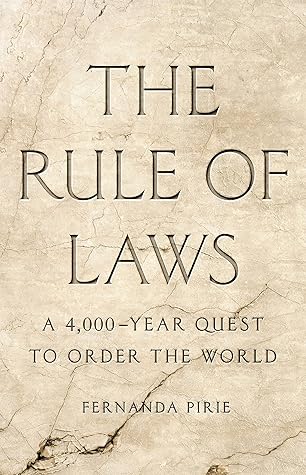Its monarchies, duchies, principalities, bishoprics, counties, imperial abbeys, and villages may have maintained their own courts, but they all recognized the civil law. Lawyers quoted passages from Justinian’s Corpus Iuris Civilis in the courts of Paris, Valladolid, and Vienna. In Scotland, too, James V confirmed that judges trained in the civil law should sit in the Court of Sessions.6 The Scottish judges accepted continental written procedures in place of common law remedies and turned to Justinian’s text to supplement Scots law, citing its ‘equity’ and ‘rationality’.
Welcome back. Just a moment while we sign you in to your Goodreads account.


